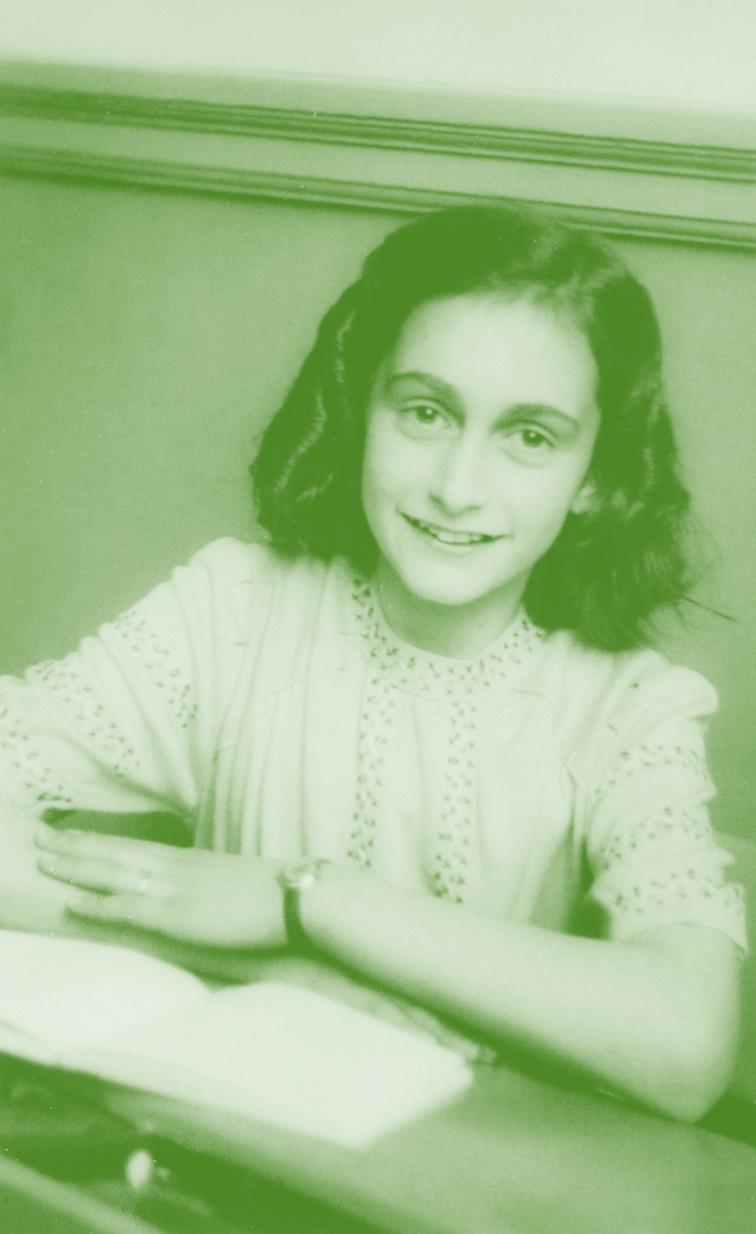
3 minute read
Anne Frank (Paula Carrillo and Miguel Benito
Anne Frank
Paula Carrillo and Miguel Benito
Advertisement
Hello, I am Annelies Marie Frank, better known as Anne Frank, and I am about to tell you the story of my life. I was born on June 12th 1929 in a Jewish family in Frankfurt. I was German, Dutch and I hadn't had a nationality since 1941. When I moved to Amsterdam, I did not know how to speak Dutch, so I attended public school in a Montessori school. I always wanted to be a writer, but my short life did not let me achieve it.
Nevertheless, during the 2 years that I was hidden from the Nazis, I wrote a diary that I received as a birthday present, so my dream came true in a certain way. Me and my family were arrested by the Gestapo in August 1944.
Later, my whole family was transported to concentration camps. In October or November 1944, me and my sister, Margot, were transferred from Auschwitz to BergenBelsen concentration camp. I died in February or March 1945, aged 15 in BergenBelsen due to the typhus epidemic.
My life was marked by the Interwar Period and the Second World War. During this time, Germany had a terrible crisis and became a dictatorship with Adolf Hitler as leader. When he invaded Poland, World War II broke out and Jews and other people, considered undesirable, were imprisoned and murdered in Nazi concentration camps and extermination camps. In May 1940, Germany invaded the Netherlands, and the
occupation government began to persecute Jews through the implementation of restrictive and discriminatory laws; mandatory registration and segregation soon followed.
Women in this age were not in their best time, but, surprisingly, World War II helped them to have more work and obtain the functions that men had at that time. Women took over factory jobs as men were fighting in Europe and Asia. The Second World War also allowed the incorporation of women into the Armed Forces. Besides being nurses, they worked in communications and in the assembly of war machines. Women played roles that were considered only for males, as pilots, spies and laborers and those who stayed in the allied countries went to work and took the jobs left by men.
I experienced several problems throughout my life but, to begin with, I lived in the time of the Second World War, and that in itself was a problem. But to make matters worse, I was of Jewish descent, and that affected me, and my entire family.
During the time I was in hiding, I kept a journal. It was an accurate and well-written record of everything I experienced with my family while we were hiding. I had one wish, and it was to be a writer. It was written in my diary and when my father received it, after I had died, he managed to publish it.
My father took the diary to a historian, who tried to publish it, without success. She then passed it on to her husband, who wrote an article about the book in the Het Parool newspaper. His article attracted the attention of the editors and the Journal was published in the Netherlands in 1947 by the publisher Contact of Amsterdam.
The truth is, my life was very hard, and I would have liked to have lived longer and not have spent two years of my life locked up. So the advice that I give you is that you should live every day as if it were your last one and value everything you have because you don't know when you can lose it.
SCAN ME AND LISTEN TO THIS TESTIMONY











